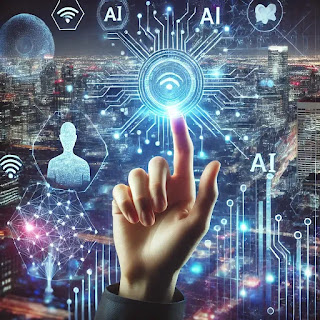The Digital Age: A Novel Period of Connection, Invention, and shift
 |
| digital age |
The Digital Age's Beginning
The arrival of computers and the internet marks the beginning of the Digital Age, called the age of data. The arrival of the computer in the middle of the 20th century changed business processes and industries, opening the door for more automated, effective, and flexible operations. When the internet first went live in the late 20th century, it provided a means of global contact, e-commerce, entertainment, and information exchange.
The basis for the Digital Age formed as personal computers became more widely available and the internet spread globally. Today, almost every facet of modern life is connected with digital technologies.
The Digital Age's Foundations
1. Connectivity
The unparalleled degree of connectedness we currently enjoy is arguably one of the most revolutionary features of the Digital Age. Geographical boundaries can be broken down by instantaneous communication amongst people worldwide thanks to the internet. how we connect with friends, family, coworkers, and even strangers has been totally changed by social networking platforms, texting apps, and video calling software.
The world has become smaller and more interconnected as a result of this continuous connectivity. Real-time access to information, services, and even employment possibilities is just as important as communication.
2. Intelligent machines and automation
Automation is now essential in the digital age rather than a luxury. Autonomous vehicles, chatbots driven by artificial intelligence, and factory robots are just a few examples of how automation is changing sectors, increasing productivity, and decreasing human error. From helping with creative work to doing detailed data analysis, the growth of artificial intelligence also widens the capabilities of robots.
This leads into increased productivity and quicker, more educated decision-making for companies. Individuals should use technology to improve their daily lives, whether it is through habit-learning smart home appliances or specific suggestions.
3. Information and Cloud Computing
Data is now the Digital Age's lifeblood. From financial transactions to analytics of user behavior, enormous volumes of data are produced every second. It is not only about the amount of data, though; it is also about how we can use it to solve issues, forecast future trends, and make smarter judgments.
In this regard, cloud computing has been quite important. presently companies and individuals may access huge amounts of data online rather than keeping them on physical machines, which speeds up and improves sharing of data. Also, cloud storage has made it easy for smaller businesses and individual users to access strong tools and resources that were earlier inaccessible.
4. Online shopping and the digital economy
The new economy brought about by the Digital Age is primarily online. E-commerce sites such as Amazon, eBay, and numerous other digital marketplaces have changed how we buy, sell, and conduct business. The retail sector has seen a change thanks to the simplicity of product searching, review reading, and instant buying.
Furthermore, the emergence of blockchain technology, cryptocurrencies, and digital payment systems has reduced dependency on conventional banking institutions by generating new methods of transaction processing.
5. Sharing of Knowledge and Education
In the Digital Age, learning has also changed. There are other places to learn outside traditional classrooms. Learning platforms such as Coursera, the Khan Academy, and edX make education easier and cheaper than in older times.
Also, the digital age is enhancing the quality of data sharing. With the click of a mouse, you can obtain a wealth of data on anything from coding to cookery through wikis, blogs, podcasts, and movies.
In conclusion
The way we live and work has drastically changed as a result of the Digital Age. Rapid invention, change, and connection are hallmarks of this era. It provides countless chances for development and advancement, but it also poses difficulties that we must carefully and morally resolve. The Digital Age is far from done, and how we handle it now will have a lasting impact on the planet.





0 Comments